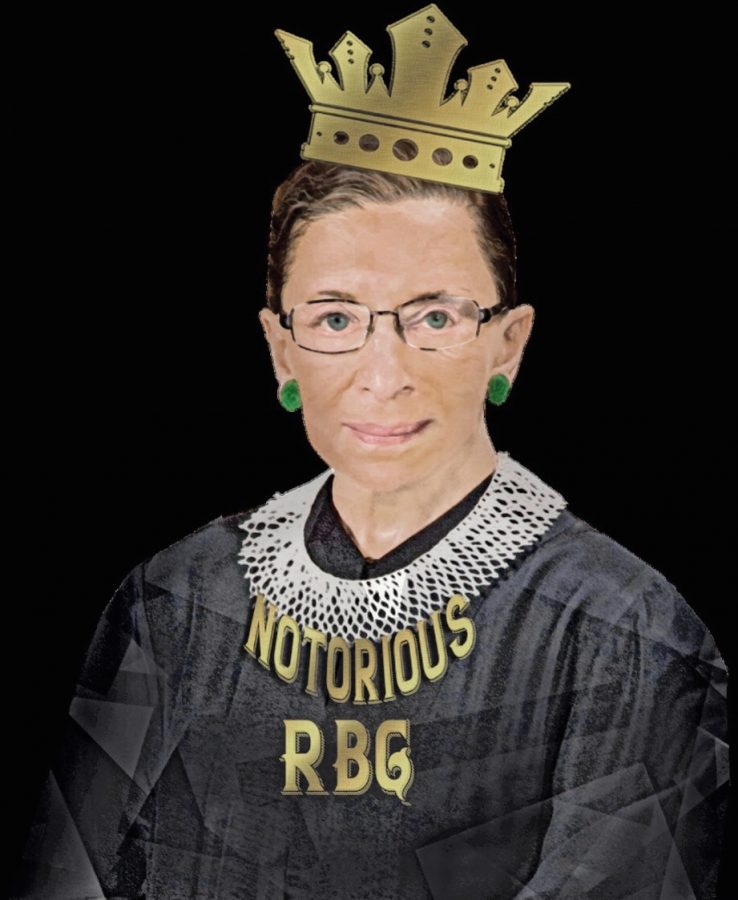Idolizing politicians obscures the truth
Ruth Bader Ginsberg with a crown on her head and the words “notorious” on her judge outfit despite her controversial attributions in politics. Illustration by uploader from Pixabay Annalise Batista.
January 4, 2021
As political candidates have turned toward social media apps to raise their reputation, there are a concerning number of people who praise these political figures too highly, even though many of them aren’t the saints that the media makes them out to be.
On platforms like Instagram and Tiktok, many people have created posts and videos that idolize politicians, especially during the 2020 presidential election. Some influencers would vocalize their support for a political figure or party by creating edits or showing favorable clips of the candidates acting in leadership, proving to their audience that they can protect or lead the country.
“I do think that myself and others tend to look up to certain politicians,” senior Jasna Valappil said. “Their influence through social media affects our opinions on politics because our generation is constantly online and that’s probably where we get most of our information and news from.”
People have idolized Ruth Bader Ginsburg, former Associate Justice of the Supreme Court of the United States, for her rulings on inequality and women’s rights. However, she shouldn’t be pictured as a perfect, untouchable figure. In the past, Ginsburg made controversial decisions in Supreme Court cases, such as clearing the Appalachian Trail for a pipeline despite environmental activists’ protests that it would harm wildlife and forests.
“At this point, politics has become so divided that people will idolize whatever leader that seems to be bringing them together,” senior Ashrita Kodali said. “Plus, the idolization is kind of turning politicians into celebrities rather than actual governmental officials. It’s almost as a routine for us to forgive celebrities for their wrongdoings no matter how many times we call them out because they tend to have a loyal fanbase.”
Pew Research Center has discovered that roughly 20% of social media users have changed their minds about a political candidate or a social issue because of material they encountered on social media. On the other hand, 37% of all social media users feel worn out by political content, as they believe that other users are too aggressive with their beliefs. This reveals how harmful and close-minded supporters can be when it comes to other’s take on a favorable politician.
“I think candidates and politicians deserve praise for doing good things, as a public response is one way that politicians shape their behavior,” senior Abby Haney said. “However, praising candidates just because they are a part of your party or because they seem right is one-sided and doesn’t really benefit anyone except for the politicians themselves.”
President Donald Trump, for example, has many supporters who think so highly of him that they even consider him a god. New York Times published an article about Bussa Krishna, a rural farmer who created a shrine dedicated to Trump where he would pray and fast for the politician.
“I find it concerning the way people idolize politicians because there is a difference between supporting and idolizing,” Valappil said. “When someone is idolizing a politician, they start to make their entire personality or life revolve around that person. They also tend to become close-minded and ignore facts. They refuse to believe their favorite politician would act or do certain things because they choose to be blinded by the truth.”



